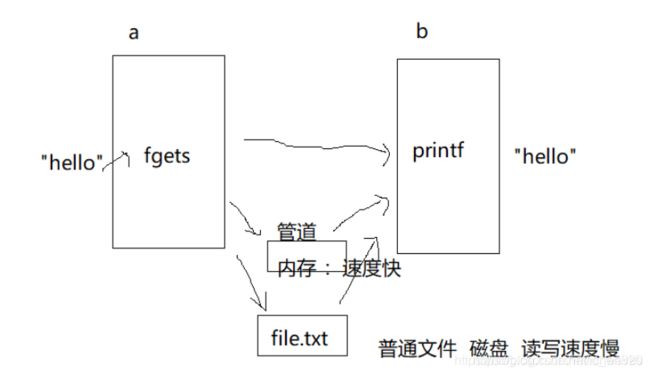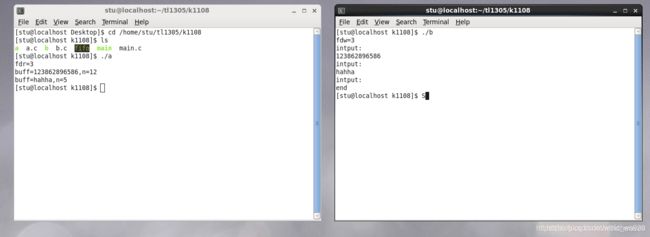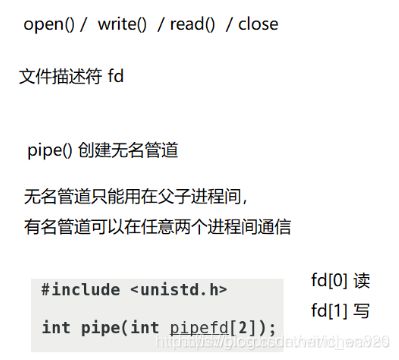Linux 管道文件
管道分为无名管道和有名管道两种管道,管道文件是建立在内存之上可以同时被两个进程访问的文件。
先来说说有名管道:
mkfifo函数创建有名管道,属于系统调用。
先创建一个有名管道文件fifo。
再写出两个对管道文件进行操作的程序,一个只读,另外一个只写。
只读:
#include int fdr=open("./fifo",O_RDONLY);
assert(fdr != -1);
printf("fdr=%d\n",fdr);
while(1)
{
char buff[128]={0};
int n=read(fdr,buff,127);
if(n==0)
{
break;
}
printf(“buff=%s,n=%d\n”,buff,n);
}
close(fdr);
exit(0);
}
只写:
#include printf("fdw=%d\n",fdw);
while(1)
{
printf("intput:\n");
char buff[128]={0};
fgets(buff,128,stdin);
if(strncmp(buff,"end",3)==0)
{
break;
}
write(fdw,buff,strlen(buff)-1);
}
close(fdw);
exit(0);
}
分别在不同的bush里面,在运行只写的里面写入字符,只读那边就会将写好的字符打印出来。
总结:1.管道为空,读read阻塞
2.管道为满,写write阻塞
关闭管道写端,读就返回为0,不再阻塞
关闭管道的读端,写端,写入数据时,会产生异常
**
##无名管道
**
#include
#include
#include
#include
#include
#include
//父子进程,父进程写入,子进程读取
int main()
{
int fd[2];//两个文件描述符
int res=pipe(fd);
assert(res != -1);
pid_t pid=fork();
assert(pid !=-1);
if(pid==0)
{
close(fd[1]);//关闭写端
char buff[128]={0};
read(fd[0],buff,127);
printf("buff=%s\n",buff);
close(fd[0]);//关闭读端
}
else
{
close(fd[0]);//关闭读端
write(fd[1],"hello",5);
close(fd[1]);//关闭写端
}
exit(0);
}
有名管道和无名管道的区别?
有名管道可以在任意两个进程之间通讯,而无名管道只能在父子进程之间通迅。
写入管道的数据是在内存中还是磁盘中?
在内存中,无论有名无名。
管道的通讯是全双工还是半双工?
半双工。


